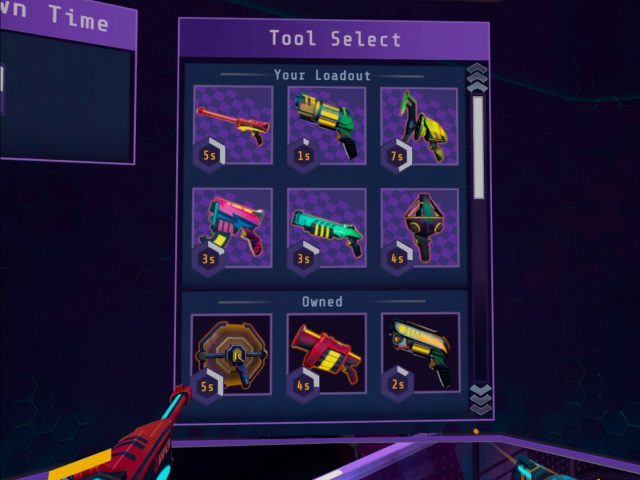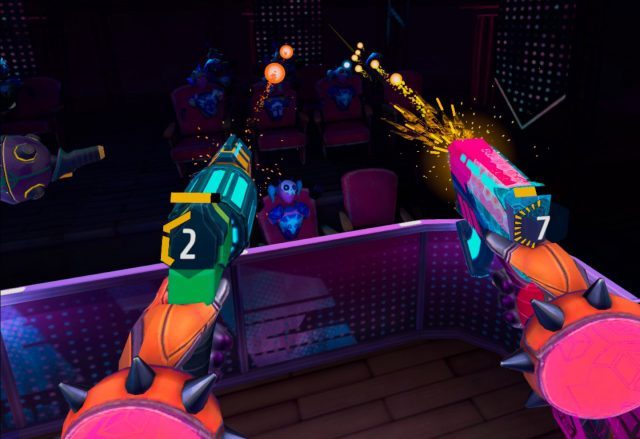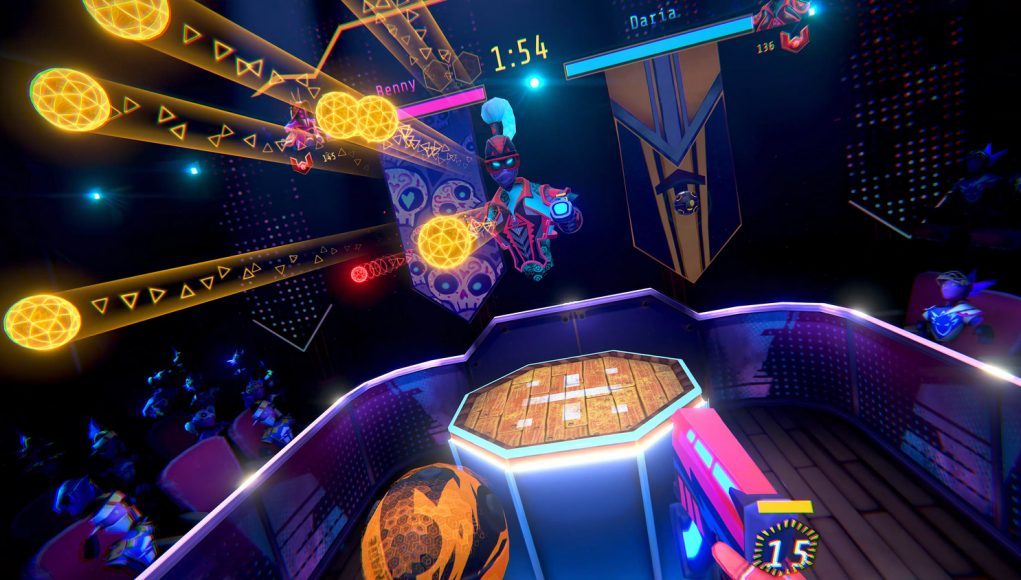Blaston, the latest VR title from Resolution Games, is a 1 vs. 1 multiplayer VR game that thinks completely outside the box and explores new and interesting mechanics that challenge the notion of what a ‘VR shooter’ can be.
I’ve spent nearly a decade now reporting on the VR industry and watching VR content grow from the earliest demo experiences for dev kit headsets to the shiniest big budget exclusive titles. And though there’s a growing number of games that truly feel ‘VR native’, the majority of VR content that we see today feels like it’s still trying to break free of the tropes of non-VR game design.
Quietly launched just last week on Quest (and coming soon to SteamVR), Blaston immediately stands out to me as a game that was designed with a properly blank canvas and developers that dodged preconceptions about how a shooting game could work in VR.
Blaston could be called a First Person Shooter—after all, it’s a 1v1 shooting game—but it’s really nothing like any you’ve played before. After playing the game for a few hours, the most succinct way I can describe the game is ‘PvP bullet hell shooter’. Here’s the gist.
Two opposing players stand on raised platforms. At the start of the match weapons begin to spawn at the edges of the platforms. Each weapon fires projectiles that differ greatly in speed & size, and guns have vastly different ammo counts & rates of fire.
Each player has a health bar and takes damage as they get hit by projectiles. To avoid them, players need to duck, weave, or block—without falling off the platform—all while returning fire.
It looks chaotic, but the slow movement of the projecticles and the differences in the weapons leave the door open to gameplay that’s deeper than just shooting. Not just in the way you dance around to dodge incoming fire, but also how you pick which weapons to bring with you into the game and how you use them together in the heat of battle.

There’s 22 different weapons in Blaston, each with their own bullet properties and spawn timers. Players choose six weapons for their loadout which spawn around them during the match. With creative weapons like laser grenades, guns with curving projecticles, and even deployable shields for blocking incoming fire, there’s tons of room for creative strategizing in offense & defense.

In a nutshell, Blaston is about making your opponent move how you want them to. Once their movements are predictable, then you know where to shoot to score damage. But your opponent might have a loadout that foils your underlying strategy, forcing you to adapt in real time and encouraging you to tweak and refine your own loadout for the next match.
In this way, Blaston is almost like a bullet hell game where—instead of a computer shooting a bunch of bullets everywhere—an intelligent agent (the other player) is the one making the ‘map’ for you in real time. It’s a genius arrangement.
Though one is a shooter and the other a melee game, aspects of Blaston’s design reminds me a lot of the artfully designed Until You Fall. It’s no coincidence that both games take special care to control the pace of combat in a way that allows for deeper gameplay to emerge, engaging both your micro-skill (aiming, dodging, and blocking) and your macro-skill (pre-game planning and overarching strategy). Nor is it coincidence that the core gameplay of both are build around engaging bodily movement instead of heavy use of buttons and sticks.
What isn’t part of Blaston is an important lesson too. There’s no reloads. No stick locomotion. No ADS. No inventory. No giant map. No shields. Etc, etc.
None of those things are necessarily bad for VR, but the assumption that they should be in there (a holdover of non-VR game design) would have steered Blaston toward serving preconceptions instead of the reality of its gameplay.
– – — – –
When it comes to VR game design, counterintuitively, one of the biggest challenges for developers seems to be stepping outside of the box of non-VR game design, to undo assumptions about what should be, and to explore new ideas that don’t neatly fit into established non-VR genres like ‘shooter’. With Blaston, developer Resolution Games has clearly demonstrated that capacity and paved new ground for all of us to consider.







